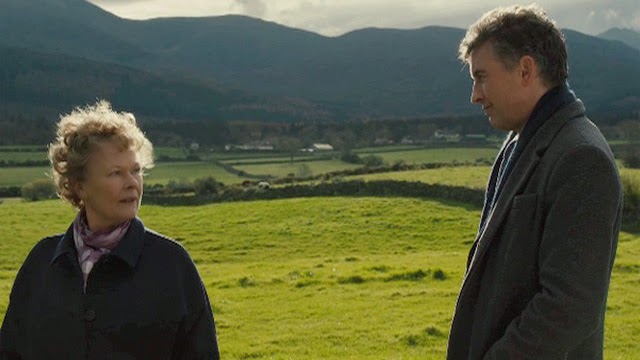THE movie Philomena won the BAFTA award for best adapted screenplay. The story of a son looking for his biological mother and the biological mother looking for her son would tug any heartstrings, more so when the mother and son in question are Irish.
Stories abound where years ago, unwed Irish mothers were put away in workhouses or convents because they were "fallen women" and their children were given up for adoption or sold.
Philomena was pregnant and unmarried at 18, so she was kept out of sight at Sean Ross Abbey in Roscrea, county Tipperary, behind grey stone walls.
In recent years however, adoptions in Ireland have become increasingly rare. Prospective parents now look abroad to adopt a child in a process called inter-country adoption.
At some point or another in our lives, we have wondered if we were adopted, especially when we do not look like our siblings.
Doubts creep in when we think and feel that our parents favour our brother or sister over us.
Stories that our parents tell us when we ask them about conception do not help either: the stork drops babies into chimneys or babies are found in dustbins and cabbage patches.
In the process of instilling fear into us or making us toe the line, parents even threaten to "give us away" if we misbehave.
I am not adopted and neither have I adopted a child. I cannot imagine what a parent goes through in the process of giving up a child to someone else.
However, my earliest memory of such a scenario was when I was about 10. I was living above a furniture shop then and usually I would exchange pleasantries with the owner of the shop when I got home from school, before making my way up the stairs, school bag and all.
On that particular day, he looked very downcast and, even after I had greeted him, he made no response.
So I asked my mother what had happened to him and she told me that he had just "given away" his sixth daughter because business was poor and they could not afford to feed another mouth.
In some cultures, it is required by law to state that a child is adopted. However, there are cases where the names of the adoptive parents are recorded as the biological parents of the child.
I have friends who have told their adopted children that they were adopted right from the start.
I also have friends who have never told their children they were adopted. '
Among the famous who were adopted were Marilyn Monroe, John Lennon, Nelson Mandela and Babe Ruth.
Among the famous who were adopted were Marilyn Monroe, John Lennon, Nelson Mandela and Babe Ruth.
Steve Jobs was adopted and even though he was subsequently re-united with his biological parents, he continually affirmed that his adoptive parents were his parents 1,000 per cent.
Every now and again, we read in the papers of people searching for their biological parents or parents searching for the babies that they had given up for adoption many years ago.
Sometimes, a chance meeting of siblings separated by birth but yet look very much alike, has paved the way for a reunification.
The book Adoption Healing, a path to recovery by psychotherapist Joe Soll, a licensed clinical social worker, lists down the myths and facts about adoption.
According to his findings, most people surrender a child to adoption because they lack the resources to do otherwise.
Bonding begins before birth and the child suffers the pain of separation from her mother.
The discovery of her adoption status is confirmation of what is innately felt and known by the child. Women who lose babies to adoption never forget and their loss is unresolvable.
There are reports of happy endings where families are re-united and aching chasms filled.
Yet, I have heard of those who have met their biological parents but chose not to have further contact with them. I have also read of biological mothers who had kept it a secret all their lives and felt that the resurfacing of a child given up for adoption would disrupt their present status.
There is just no generic rule that reunification spells happiness.
Source: Looking for the blueprint - Columnist - New Straits Times http://www.nst.com.my/opinion/columnist/looking-for-the-blueprint-1.503229#ixzz2w54r9wM6


.jpg)




























.jpg)







